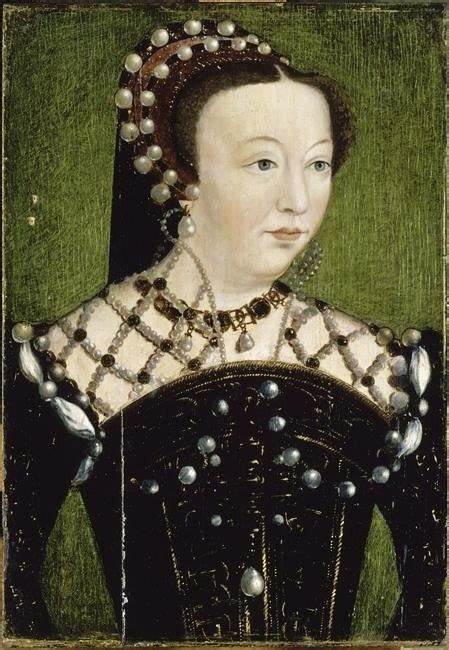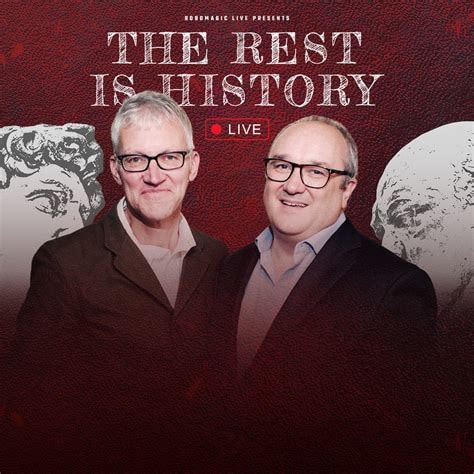May I indulge in a moment of shameless namedropping? I am a friend of Dominic Sandbrook, the historian and commentator, who, together with Tom Holland, has created the unbelievably successful podcast series, The Rest Is History. Of course, over the past couple of years I’ve been quietly aware of the growth of their following, and I often made a vague mental note to myself to have a listen, but I was focused on other things and never got round to it. One wet Friday night, Dominic and I were chatting while we waited for the school bus to drop off our children, and I was forced to confess that I’d never listened to a single episode. He hid his hurt and dismay so well that I could have sworn he was completely unaffected by my temporary lapse in the duties of friendship.
Shamed nonetheless, I went ahead and listened to a couple of episodes. I was completely hooked and soon stumped up for annual membership of the RIH Club. I started with the Peasant’s Revolt. I’d heard of Wat Tyler, vaguely conceiving that he was a bit of a rebel, a thorn in the side of the English establishment, but otherwise I knew very little of the surrounding circumstances. Well, I’m ignorant no longer! Then I skipped ahead a few centuries to the rise of Hitler and Nazi Germany, much more familiar territory. Tom and Dominic are very good at picking out the darkly comic aspects of history: just as an example, Dominic reads out some of Hitler’s speeches in a German accent, but they also manage to give appropriate weight and gravitas to the horrific rise in anti-semitism during the 1930s and relate very personal accounts of how this affected individual Jews and their families. They also comprehensively describe the rise of totalitarianism, the gradual, creeping incremental changes which normalised the ceding of individual freedoms to an increasingly intrusive state. A rise in anti-semitism and massively increased powers of government should send shivers down our collective spine today.
Of course the grand sweep of history is important, but what I love about RIH are the details. The personal, the particulars, the little pettinesses, jealousies, rivalries, the factions and favourites, the peccadilloes and peculiarities which make this show such a chatty, gossipy yet guilt-free pleasure, as it’s so edu-cay-shunal.
My favourite episodes put the spotlight on Britain in 1974, arguably the worst year in post-war British history. The country was in an impossible mess: a disastrous economy, industry at rock bottom lows with astronomical oil prices following the Yom Kippur war, inflation, violence in Northern Ireland, miner’s strikes, power outages, the imposition of a three-day week … as Tom so pithily puts it: ‘everything was going t*ts up.’
So you would be forgiven for wondering how things could possibly get worse. Yet look at us now, fifty years later. A profligate government, taxes at an all-time high, a voracious yet colossally unproductive public sector, a post-Covid hangover where the illest, eldest and most obese population in Europe is bedeviled by doctor’s strikes and we have Putin breathing down our necks with a nuclear bomb in his back pocket. We have a looming election where we are still ultimately being offered Morton’s fork: voting Tory seems a colossal reward for failure, but how can we plump for Labour, who only promise more of the same?
Before I become boringly gloomy, what makes the episodes a delight are the revealing insights into the personal lives and personalities of the main players. Ted Heath was spoilt by his mother (even the family dog was named after him), was socially insecure and insufferably rude, particularly to women. After a female journalist had fainted during a very turbulent flight, he called for brandy, only to drink it himself! Harold Wilson was bossed around mercilessly by his imperious private secretary Marcia Williams (Later Baroness Falkender), who policed his lunch hour, dragged him unceremoniously out of drinks parties and scolded him in front of visiting dignitaries like a disobedient schoolboy. She was so loathed by Wilson’s team that a couple of them seriously discussed having her bumped off. Yes, yes, of course that’s horribly misogynistic, but you’d have to have a heart of stone not to laugh.
History tells us more or less accuracately what people did, but historical fiction brings alive their thoughts and feelings. Great historical fiction doesn’t involve falsifying the past, rather it’s a re-imagining, an empathetic interpretation of actual events, and if done well, readers can sympathise with historical figures, even ones remembered by posterity as ghastly villains. As a teenager, I was addicted to Jean Plaidy novels. The titles of her Medici trilogy tell you a lot about her representation of the principal character, Catherine de Medici: The Italian Woman, Queen Jezebel and Madame Serpent. Catherine was wily, supposedly a wicked scheming poisoner blamed for the massacre of St Bartholemew’s Eve, which resulted in the deaths of thousands of Huguenots. However, Plaidy (real name Eleanor Hibbert) depicted a scene from Catherine’s early life which I never forgot. As a child, under the tutelage of her Aunt Clarissa, she was instructed never to forget her dignity, never show or complain of physical weakness, and to hide her true feelings, as this would make her vulnerable to her enemies. Brought up strictly and with little affection, Catherine had two silky-haired spaniels that she loved beyond measure. As a punishment for losing her temper, her aunt fed one of the dogs with a slow-acting poison, and forced the child to watch him die. A single hint of emotion would result in the death of her other dog too.

I have no idea if the above scene was true or imagined. The point is that Plaidy succeeded in creating sympathy for Catherine, making her future actions more understandable. She suffered multiple humiliations at the hands of her husband, Henri II of France and his mistress, Diane de Poitiers, who was flaunted openly as his true love and received most of the public honours which should have been due to Catherine as Queen. One of Plaidy’s great omissions as a novelist was failing to depict Diane’s fate after Henri’s sudden death. As the mother of the underage Dauphin, Catherine suddenly acquired immense power. I would not have wanted to be in Diane’s shoes, particularly as Catherine was not known for her forgiving nature. Diane probably retreated into quiet obscurity, sensibly keeping her head down, but a scene depicting Catherine’s revenge on her hated rival would have been too tempting for me to avoid.
Of course we have a duty not to misrepresent the dead, but we can squint a little, look askance at the gaps, the omissions and the gaping holes between the known facts and we can colour them in with our perception of psychological truth. We can imagine the possibilities, the pieces of the puzzle that may fit. In the absence of the exact truth, the ring of truth is surely enough.
Hilary Mantel described history as ‘what’s left in the sieve when the centuries have run through it – a few stones, scraps of writing, scraps of cloth.’ RIH focuses on the facts, of course, but they also digress to philosophy: how important are individuals? Can any one person really make a difference? If s/he does, is it because of their unique attributes, their physical or moral courage, leadership, brilliance, charisma, intelligence, spiritual purity, or are these people merely products of their environment? They conclude that individuals don’t matter all that much. Maybe they’re right, but I can’t help but disagree. Perhaps it’s a great comfort to believe that a single person can make all the difference, that there’s someone out there who can drag us out of the mess we’re in. In the meantime, we should read and study history, not just to avoid repeating it, but because the challenges we face are as old as the hills:
The Solution to All Our Economic Problems
“We need to balance our budget.
The Treasure should be refilled.
In our profligate public officials
Some frugality should be instilled.
Our national debts are out of control,
The jobless a drain on the purse.
Handouts look like a godsend.
Instead, they’re a trap and a curse.
There’s a malaise among the common man
Who should re-learn the value of work.
Each person should try to contribute.
From their duty they should not shirk.
Our officials are far too arrogant,
Our bureaucrats vultures, immersed
In cheap political point-scoring,
In lining their pockets or worse.
We send too much cash to foreigners.
We should look to our needs at home,”
Said Marcus Tullius Cicero
Over two thousand years ago.







